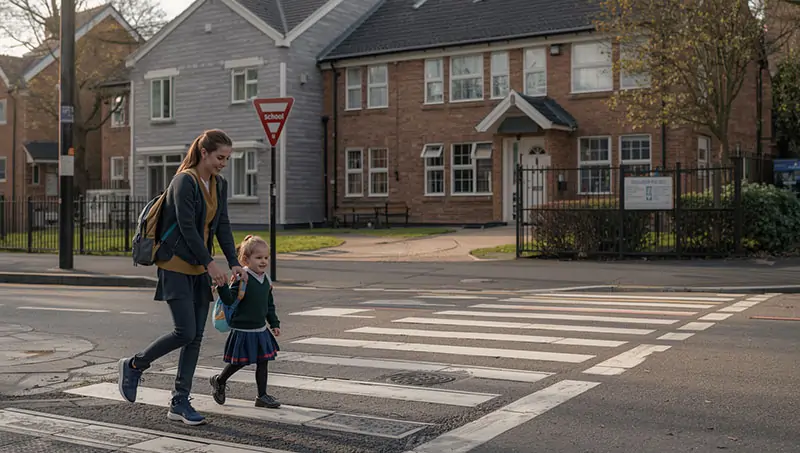10 Warning Signs of Drug or Alcohol Addiction in Teens — A Guide for Parents
Disclaimer: This article is intended for parents, caregivers, and educators. It discusses topics related to substance use and is not suitable for young children.
Before a young person—or those close to them—understands it entirely, addiction can silently grip their life. Early identification of possible warning signs is essential for parents and caregivers to provide support and receive assistance before the situation gets more severe.
Knowing these symptoms will help you start the road toward recovery regardless of your concerns—about a student, a child in your care, or even a family member.
Ten typical signs of suspected drug or alcohol abuse among teenagers are listed here, together with advice on how to react.
1. Increased Tolerance
Teenagers who seem to need more of a substance—such as energy drinks, drugs, or even alcohol—to feel the same effects could have more tolerance.
What You Can Do: You can gently start a conversation. If you worry about alcohol consumption, think about consulting a specialist or investigating an alcohol rehab facility with young-oriented support.
2. Physical Discomfort Without a Substance
If young individuals lack something they have grown accustomed to, they may exhibit symptoms of anxiety, restlessness, or impatience. Although this may not always point to addiction, it is a warning worth looking at.
What You Can Do: See a healthcare provider if these symptoms return often. Alcohol treatment facilities such as the Beverly Hills rehab center offer private, safe assessments to evaluate a person’s situation.
3. Difficulty Controlling Usage
Teens who constantly try to cut off or lessen specific behaviors—like drinking at parties—but find it difficult may be losing control over their actions.
What You Can Do: Contact a teenage counselor or alcohol rehab facility experienced in adolescent behavior and recovery strategies.
4. Struggles with Responsibilities
Signs of emotional pain—or drug use disrupting daily life—could be slipping grades, missing homework, or lack of drive.
What You Can Do: Young individuals can restore habits, boost confidence, and pick up life’s obstacles’ coping mechanisms using a systematic alcohol treatment program.
Such programs often provide a multi-faceted approach, beginning with medically supervised detox to ensure safety and comfort during withdrawal. Following this, individuals may transition into inpatient or outpatient programs, depending on their specific needs and the severity of their addiction.
These comprehensive centers prioritize a holistic recovery journey, integrating evidence-based therapies with wellness practices to address not just the physical aspects of addiction but also the emotional and behavioral components. For families seeking support in the New Jersey area, finding a facility that offers personalized care plans and ongoing community support can be crucial for fostering lasting sobriety, much like what is offered at Legacy Healing Center’s drug rehabs in NJ.
5. Sudden Mood or Behavior Changes
More irritation, emotional disengagement, or erratic behavior could hint at stress or more serious problems such as alcohol abuse.
What You Can Do: You could want to think about a professional assessment. Many alcohol rehab facilities provide dual diagnosis assistance with mental health and addiction.
6. Loss of Interest in Activities
Teens who lose interest in sports, activities, or time with friends could be struggling inside. Though not necessarily connected to addiction, it merits some careful investigation.
What You Can Do: Recovery programs, such as alcohol rehab facilities or teen wellness groups, can enable young people to rediscover their passions in conducive surroundings.
7. Increased Secrecy or Risky Choices
Although seclusion is typical for teenagers, abrupt silence—especially regarding behavior or location—may cause alarm.
What You Can Do: Open talks help establish trust. If necessary, involve a counselor or adolescent specialist to direct your next actions.
8. Notable Changes in Appearance
Changes in hygiene, unexplained tiredness, or notable weight loss could all be reflections of emotional stress or bad habits.
What You Can Do: Promote self-care and give some thought to a medical visit. Specific alcohol treatment programs also provide kids with wellness and dietary support.
9. Financial or Behavioral Consequences
More frequent financial requests or school penalties could indicate more serious problems, particularly if combined with disobedience or withdrawal.
What You Can Do: Help Your Teen Create Responsibilities and Good Habits An early-stage alcohol rehab visit might offer insight free from judgment.
10. Avoidance or Denial
Teenagers who insist “everything is fine” when there are apparent issues can delay necessary treatment.
What You Can Do: Keep cool, pay attention, and be present. Many families have recovered through the correct alcohol rehab facilities with compassion and continuous care.
How Parents and Educators Can Make a Difference
Seeing the symptoms marks only the start. Here’s how you can act:
- Choose a peaceful moment to have a conversation and give listening top priority.
- Educate yourself on teenage health and behavior.
- Ask for help from youth care-oriented alcohol treatment programs or school counselors.
- Show that your care is constant, especially in trying circumstances—be patient and present.
Related reading: A Guide for Mothers of Teenage Daughters
Conclusion
Teenagers’ drug use is a sensitive yet essential topic. Long-term healing is more likely when an older caring adult intervenes. You must be a willing guide ready to act, not a specialist.
Do not hesitate if you worry about a young person in your life. Professional assistance, particularly young-centered alcohol recovery programs, is readily available and sometimes transformative. Often, recovery starts with one worried adult acting first.


